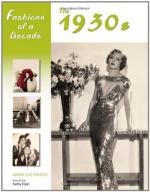|
This section contains 133 words (approx. 1 page at 300 words per page) |

|
By 1932 public support for the prohibition of the manufacture and sale of alcoholic beverages had dropped to a point where the Democratic Party could, with little fear of alienating the voters, include repeal of the Eighteenth Amendment (prohibiting the sale, manufacture, or transportation of intoxicating beverages) in its platform. Inconsistency in the law's application, doubt as to its enforceability, disgust with the little respect shown for the law itself, and changes in public attitude all combined to make the firstever repeal of a constitutional amendment possible. The Depression may have raised more serious concerns for Americans to ponder, but many were also dismayed by the federal government's inability or unwillingness to assume a more aggressive role in pursuing Prohibition's objectives and in bearing the cost of its enforcement.
|
This section contains 133 words (approx. 1 page at 300 words per page) |

|




